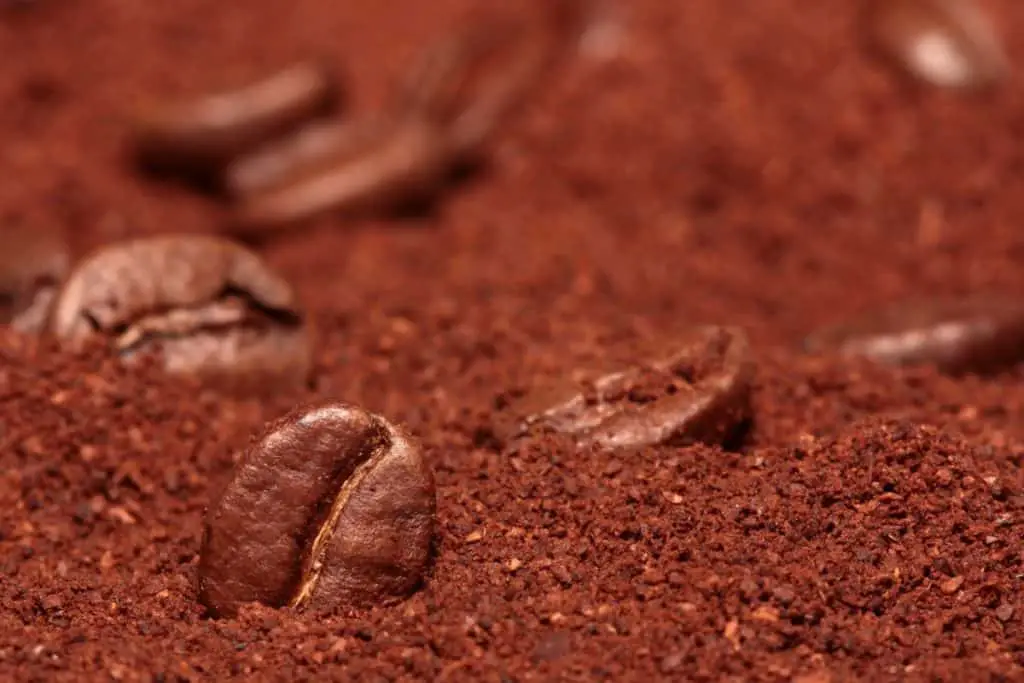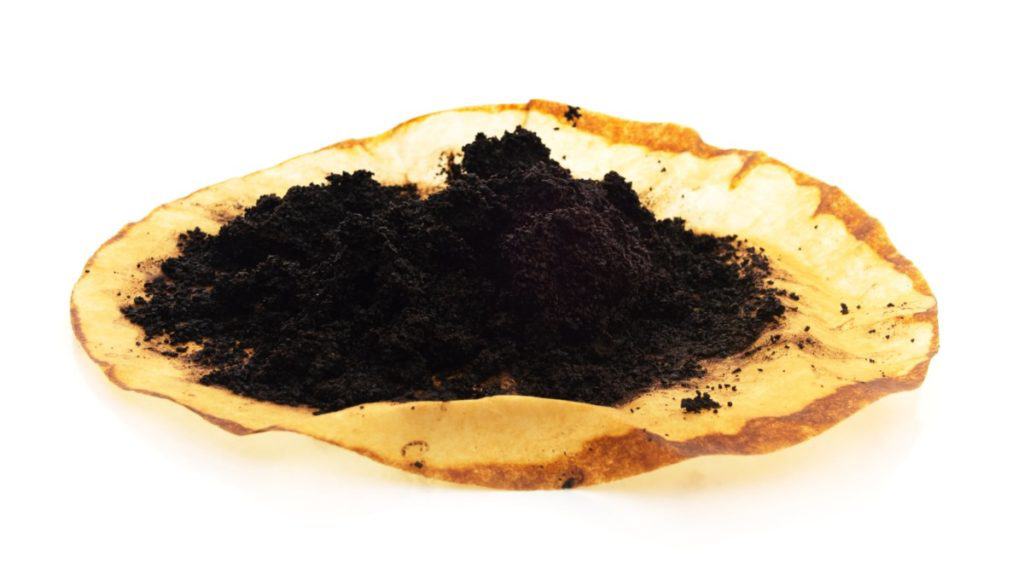Garbage disposals are great at grinding up, disposing of, and crushing all types of food, but they do have their limits. It makes sense that big bones, non-food items, and large amounts of table scraps shouldn’t be stuffed into your garbage disposal, but what about everyday items like coffee grounds?
You can put coffee grounds in your garbage disposal if you do so in small amounts, but it is best to avoid this practice. Coffee grounds will not damage the actual disposal, but they are prone to grouping together in the pipes and drain, causing clogs and damaging the plumbing.
Somewhat surprisingly, coffee grounds are not the only everyday food waste that shouldn’t be put down the garbage disposal. If you want to know more about why coffee grounds and certain other foods should stay out of your disposal, read on!
Garbage Disposals And Coffee Grounds
In the United States, 64% of adults ages 18 or older drink coffee every day- that means a lot of coffee grounds are being disposed of.
Along with the 64% of adults that drink coffee, 50% of households in the United States have kitchen garbage disposals, so it is highly likely that many coffee-drinking adults are wondering whether or not they can put their coffee grounds in their garbage disposals.
If you are one of these people, we have the answers you are looking for!
The real answer to the question of whether or not you can put coffee grounds in the garbage disposal is confusing because it is both a yes and a no.
Coffee grounds are made up of ground coffee beans, meaning they are the pulp form of these beans.

The anatomy of a coffee bean includes the inner bean, the silver skin, the parchment or hull, the pectin layer, the pulp, and the outer skin or exocarp.
All of these layers make up what we know as a coffee bean, and when coffee is made, they are ground up into a pulp and drained.
These used grounds are less flavorful than coffee beans, but they still contain the skin, oils, and fibers of the bean itself.
When you put a small amount of these grounds down the garbage disposal, it is no big deal. They may get stuck for a second or two, but if you wash them down the drain using cold water they will not clog anything.
If you are planning on putting more than a few teaspoons of coffee grounds in your garbage disposal, it is best to throw them in the garbage.
Earlier, I mentioned that coffee grounds don’t damage the garbage disposal- they actually clean the blades and provide your disposal with a nice smell.
They do, however, damage the pipes and drain that your garbage disposal funnels food into.
When a lot of coffee grounds are put into your garbage disposal all at once, they will most likely go down the disposal just fine. The issue occurs when they collect in the drain and pipes.
The oils, skin, and pulp that make up the coffee grounds can clump together and form a nearly impenetrable ball of coffee.
If you want to avoid calling the plumber to your house to rid your pipes of coffee grounds, it is best to throw them directly into the garbage.
Disposing Of Coffee Grounds
It may seem odd that coffee grounds shouldn’t be put down a garbage disposal, but it is the truth.
You can always put your coffee grounds in the garbage, but if you don’t want to toss them away, there are other ways they can be reused before being disposed of.
- Plant Pest Control: Used coffee grounds can be spread around your house plants as well as the perimeter of your outdoor garden as a way to repel plant pests like ants, slugs, and snails.
- Strengthen Your Compost: If you have an at-home compost system, feel free to add your used coffee grounds to it! Worms will love the tasty fibers you provide and you will love the boost in compost production.
- Deodorize Your Fridge: Whether we like it or not, refrigerators can create unwanted smells that seem to come from nowhere. Coffee grounds are a great remedy to this issue! Just put your used grounds in a cup, bowl, or jar, and set them in your fridge to freshen the smell.
- Use To Deep Clean: Coffee grounds are just tough enough to be great at scrubbing without damaging the thing they are scrubbing. To use them as a deep cleaner, put grounds in a jar or bowl near your kitchen sink and scoop a bit into your pot, pan, or other tricky dish for an easy clean.
- Cleanse Your Body: Coffee grounds are not only useful for cleaning your dishes- they can clean you, too! You can rub a mix of coffee grounds and water on your skin to exfoliate, massage coffee grounds into your hair to remove product build-up before washing, and even use them to deep clean and exfoliate your hands!
If none of these options are appealing or available to you, your trash can serves as a reliable option.

Foods To Avoid
Now that you know coffee grounds shouldn’t go down the garbage disposal, you may be wondering what other common foods should stay out of your sink.
You have no need to worry about this any longer because we have compiled a list of foods that should never go in the garbage disposal as well as explanations for why they should stay out.
- Hard Bones: Hard bones should never be put in a garbage disposal. Chicken bones are weak and can easily be broken up by your disposal, but bones from pigs, cows, and other large animals cannot. Their bones are too large, too hard, and too thick to be ground by a standard garbage disposal and will most likely cause damage if you attempt to grind them.
- Eggshells: Eggshells may come as a surprise to some, but they should not be put in garbage disposals. The rough texture of eggshells can dull the crushing mechanisms inside your garbage disposal, making it less effective over time.
- Ice Cubes: Just like eggshells, ice cubes dull the crushing mechanisms within your garbage disposal, so they are best left to melt.
- Potato Peels: Potato peels become mushy and thick due to the starches in the potatoes; when ground up in a disposal and washed down the drain, the peels can turn into a thick paste and cause blockages in your pipes.
- Grease, Oil, and Fat: We all know that grease, oil, and fat shouldn’t be put down the drain, but many people don’t know that they shouldn’t be put down garbage disposals either. They should stay out for two reasons- first, they can get stuck in small areas within your garbage disposal and cause it to become less effective, and second, the garbage disposal puts them directly into your pipes.
- Fibrous Materials: Fibrous materials like corn husks, celery stalks, and onion skins should stay in the garbage. The fibers in these foods can tangle and jam your garbage disposals motor and block drainage, causing issues immediately as well as down the road.
- Expandable Foods: Expandable foods such as pasta, bread, and rice should never be put down the garbage disposal. Though they may grind up just fine, the water being poured down the drain will cause them to expand over time. This can make them stick to or clog your pipes and -because these foods are so mushy- they are very difficult to wash or clean out without removing the pipes themselves.
Related Topics:
IIf you like the article above, here are some other similar articles you should check out!
How to Remove Grease from a Garbage Disposal?
